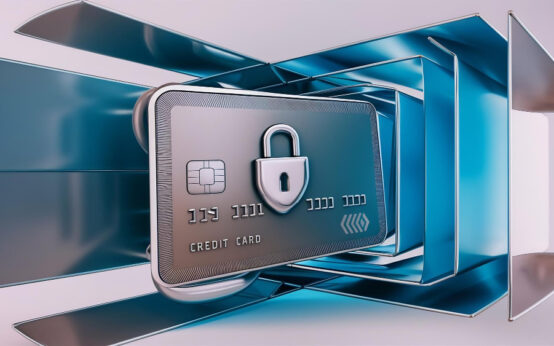Rewards credit cards offer a plethora of benefits for savvy spenders. If you’re looking to get the most out of your purchases, understanding these rewards systems is key. This post will guide you through essential information about rewards credit cards, helping you make informed decisions and maximize your perks.
What Are Rewards Credit Cards?
Rewards credit cards are a type of credit card that offer various perks and incentives to the cardholder for their spending. These cards reward users with points, miles, or cash back on their purchases, which can then be redeemed for different benefits.
Points: These can be accumulated and exchanged for a variety of goods and services, including travel, merchandise, and gift cards. Points generally have a set value and can be redeemable within the card issuer’s reward portal.
Miles: Often associated with travel rewards credit cards, miles allow cardholders to earn for every dollar spent. Miles can be redeemed for flights, hotel stays, and other travel-related expenses, making them ideal for frequent travelers.
Cash back: This type of reward gives a percentage of the amount spent back to the cardholder. Cash back rewards can usually be applied as a statement credit or deposited into a bank account, offering a straightforward way to benefit from everyday purchases.
Some rewards credit cards offer additional perks such as bonus categories where users can earn higher rewards rates on specific types of spending like dining, groceries, or gas. These cards might also come with sign-up bonuses, providing a substantial number of points, miles, or cash back after meeting a minimum spending requirement within the first few months.
While rewards credit cards can offer valuable benefits, it’s essential to understand the associated terms and conditions. Many rewards cards have annual fees, variable interest rates, and specific redemption rules that can impact the overall value of the rewards. Being mindful of these factors ensures that you maximize the benefits of your rewards credit card.
Top Benefits of Using Rewards Credit Cards

Earn Points or Cash Back
With rewards credit cards, you can earn points or cash back on everyday purchases. These rewards can accumulate quickly and provide significant savings on things like groceries, gas, and dining out.
Redeem for Travel
Some rewards credit cards offer points that can be redeemed for travel. This includes flights, hotels, and car rentals. If you enjoy traveling, these cards can help you earn free or discounted trips.
Sign-Up Bonuses
Many rewards credit cards offer generous sign-up bonuses. By meeting a spending requirement within the first few months, you can earn a large number of points or cash back.
Special Perks and Discounts
Rewards credit cards often come with special perks and discounts. These can include access to exclusive events, concierge services, and discounts at certain retailers.
Build Credit
Using a rewards credit card responsibly can help you build and improve your credit score. By making timely payments and keeping your balance low, you demonstrate good credit habits to lenders.
How to Maximize Your Rewards
Understand Your Reward Categories: Many rewards credit cards offer additional points or cashback in specific categories such as groceries, dining, or travel. Review your card’s policy to know where to use your card strategically.
Pair Multiple Cards: Utilize different rewards cards to take advantage of various categories. If one card offers extra points on dining while another gives more on travel, using both can maximize your rewards.
Keep Track of Expiring Rewards: Some rewards may have expiration dates. Set reminders to use points or miles before they expire to avoid losing them.
Use Your Rewards Wisely: Redeem your rewards for high-value items or experiences. Often, travel redemptions or goodies through the card’s portal provide better value than cashback or gift cards.
Monitor Spending:
Monitor your spending habits
to ensure you are not spending more just to earn rewards. Always stick to a budget and pay off your balance in full each month to avoid interest charges.
Common Mistakes to Avoid

Not Understanding the Terms and Conditions: Many cardholders overlook the fine print. Ensure you understand how to earn and redeem points or rewards effectively.
Ignoring Annual Fees: Some rewards credit cards come with high annual fees. Be sure the rewards outweigh the costs before committing.
Not Paying Off the Balance: Failing to pay your balance in full each month can result in high-interest charges, negating the benefits of your rewards.
Overlooking Rotating Categories: Some cards offer higher rewards in specific categories that change quarterly. Keep track to maximize your earnings.
Missing Out on Sign-Up Bonuses: Many cards offer significant bonuses if you spend a certain amount within the first few months. Plan your spending to take advantage of these offers.
Spending Just for Rewards: It’s easy to overspend in the pursuit of rewards. Only make purchases you can afford to pay off immediately.
Not Using the Right Card for the Right Purchase: Different cards offer varying rewards rates for different types of purchases. Match your spending to your card’s strengths.
Ignoring Perks and Benefits: Many rewards credit cards offer additional perks such as travel insurance or purchase protection. Make sure you’re aware and taking full advantage of all your card’s features.
Choosing the Best Rewards Credit Card for You
Choosing the Best Rewards Credit Card for You involves understanding your spending habits and financial goals. There are several types of rewards credit cards, each offering unique benefits. Consider whether you prefer cashback, travel points, or specific retail rewards.
Analyze the earning potential of the card. Some cards offer higher rewards for specific categories like groceries, gas, or dining. Ensure these categories align with your regular expenses to maximize benefits.
Pay attention to the annual fees and interest rates. Some rewards cards come with high annual fees, which might not be worth it if the rewards do not outweigh the costs. Balance these fees against the rewards and perks offered to determine overall value.
Consider the sign-up bonuses. Many rewards credit cards offer attractive sign-up bonuses if you spend a certain amount within the first few months. Ensure you can meet these spending requirements without overspending or disrupting your budget.
Review the redemption options. Different cards have different redemption policies. Some offer more flexibility than others, allowing you to redeem points for a variety of rewards such as travel, merchandise, or statement credits.
Check for additional perks like travel insurance, purchase protection, and extended warranties. These extras can add significant value to your rewards card, providing peace of mind and additional savings.



 Best credit cards secured: your path to a stronger credit history <p style='text-transform:none; line-height:20px !important; font-size:16px; font-weight:normal; color:#424242; margin: 0px; margin-top:10px;'>They offer a smart way to show lenders you’re serious about managing your finances.</p>
Best credit cards secured: your path to a stronger credit history <p style='text-transform:none; line-height:20px !important; font-size:16px; font-weight:normal; color:#424242; margin: 0px; margin-top:10px;'>They offer a smart way to show lenders you’re serious about managing your finances.</p>  The best credit cards for lounge access: your key to premium airport comfort <p style='text-transform:none; line-height:20px !important; font-size:16px; font-weight:normal; color:#424242; margin: 0px; margin-top:10px;'>With these cards, you have exclusive access to lounges, offering comfort while you wait for your flight.</p>
The best credit cards for lounge access: your key to premium airport comfort <p style='text-transform:none; line-height:20px !important; font-size:16px; font-weight:normal; color:#424242; margin: 0px; margin-top:10px;'>With these cards, you have exclusive access to lounges, offering comfort while you wait for your flight.</p>  Safe, simple, and fun: discover the best debit cards for kids <p style='text-transform:none; line-height:20px !important; font-size:16px; font-weight:normal; color:#424242; margin: 0px; margin-top:10px;'>These cards offer the flexibility and convenience that both parents and kids need.</p>
Safe, simple, and fun: discover the best debit cards for kids <p style='text-transform:none; line-height:20px !important; font-size:16px; font-weight:normal; color:#424242; margin: 0px; margin-top:10px;'>These cards offer the flexibility and convenience that both parents and kids need.</p>